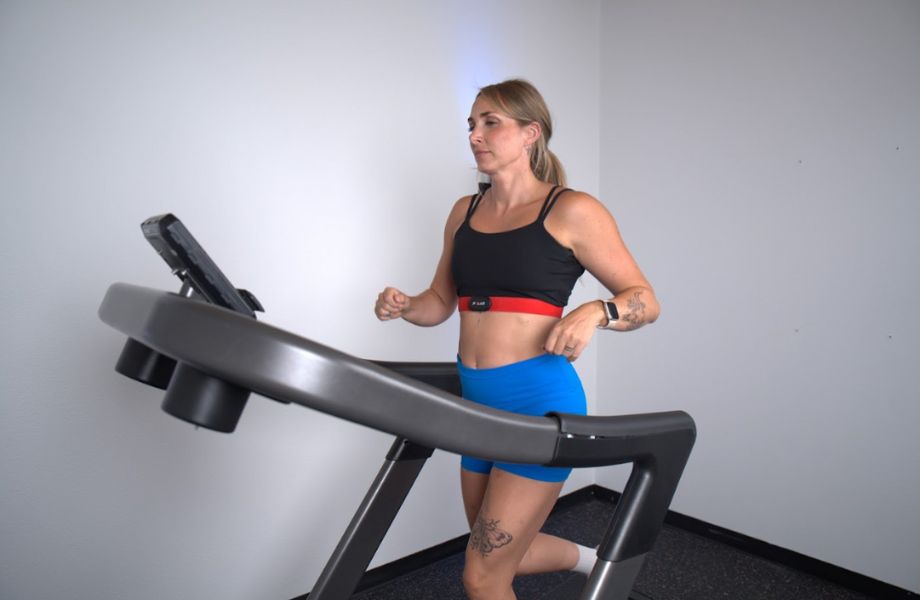We test and review fitness products based on an independent, multi-point methodology. If you use our links to purchase something, we may earn a commission. Read our disclosures.
It’s no secret that many people constantly feel some degree of stress in their lives. Between work, finances, personal relationships, hobbies, and our social lives, many people have too much on their plate, leading to chronic stress.
While working out may seem like yet another task or stressor, especially as certain forms of exercise can be challenging, physical activity is a powerful way to relieve stress. Along with improving your physical health, a workout can help your nervous system calm down, providing near-immediate stress relief.
In this article, I’ll explain the relationship between exercise and stress. You’ll learn how the two interact, how exercise focused on cardiovascular fitness can help manage stress, and the best types of exercise to help you relax.
Key Takeaways
- Research shows that exercise is associated with reduced stress1 in adults.
- Exercise reduces the levels of cortisol and adrenaline2 in the body, which are common stress hormones.
- Similarly to the feeling of a runner’s high, all aerobic exercise can help release endorphins3, leading to better mood and reduced stress.
The Relationship Between Exercise and Stress
When it comes to stress resilience, our bodies have a limited capacity to handle stress. To make things even more challenging, different types of stress can compound, causing a chronic elevation in cortisol, the stress hormone.
Why does this matter? Well, the effects of stress can have a powerful impact on your quality of life, and stress reduction should be a priority.

According to the American Psychological Association, chronic stress can increase your risk4 of developing anxiety disorders due to a reduction in serotonin, digestive issues, muscle tension, headaches, and cardiovascular disease, as well as suppress your immune system.
Deadlines at work or school, financial challenges, a fight with your significant other… all of these situations can work together to keep you chronically stressed throughout the day. While exercise can certainly be another form of stress, as it’s taxing on the body, using the right kind of exercise has actually been shown to relieve stress over time.
RELATED: Exercise and Mental Health
We’re not saying that forcing yourself to go for a run after a tough day is the answer to all of your problems. However, if you make exercise a part of your daily routine, the research is quite clear: it’s going to help reduce your stress levels.
There are many benefits of exercise at any age that you’ll enjoy, including improved cardiovascular health, strength, cognitive function, and more. Stress management is just one more reason to make exercise a part of your life.
How Does Exercise Reduce Stress?
Exercise relieves stress primarily through its hormonal impact, as it can reduce stress hormones and increase feel-good hormones.
When you’re stressed, adrenaline and cortisol tend to rise, two of our body’s stress hormones associated with the fight-or-flight response. This natural reaction is designed to keep us alive in threatening situations. Elevated adrenaline can help us fight for our lives or flee from danger, and cortisol helps increase blood sugar levels for fast, readily available energy.
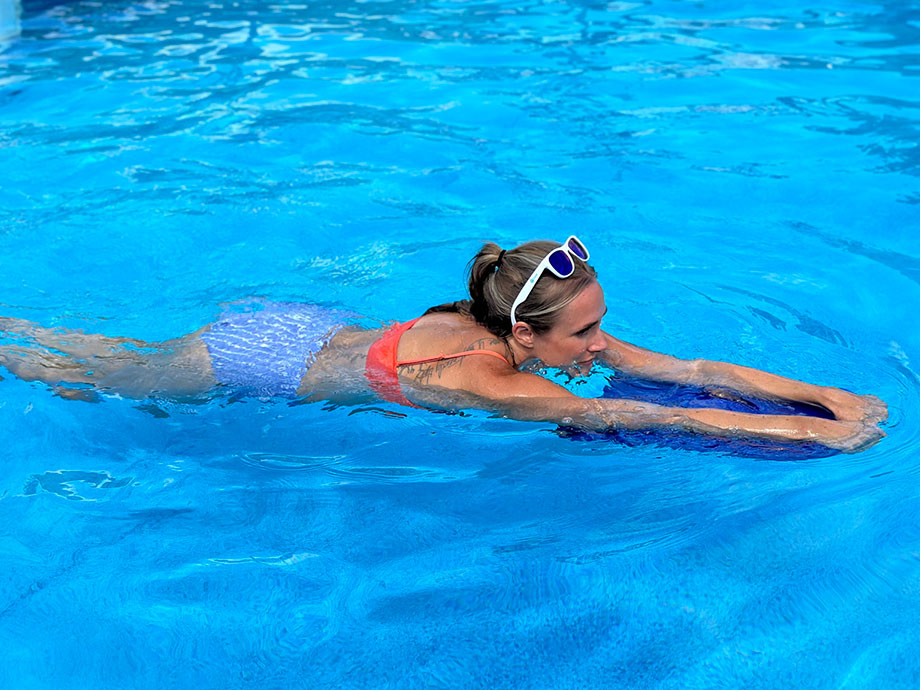
However, all sorts of modern stressors can trigger this same response, whether or not our lives are actually at risk. If you’re stressed while finishing a big project before a deadline, your adrenaline and cortisol levels are surging and priming you for a fight, even if you’re simply sitting at your desk.
RELATED: Exercise Stress Test
Exercise has been shown to reduce levels of cortisol and adrenaline2, releasing some of that pent-up energy and helping you calm down.
In addition to clearing out stress hormones, exercise releases endorphins, which are neurotransmitters that act as natural painkillers and mood enhancers. According to Harvard Medical School2, endorphins cause the famous “runner’s high,” as well as feelings of relaxation and optimism after a workout.
This means that exercise can simultaneously lower stress hormone levels while increasing levels of happy, feel-good endorphins.
Exercises to Reduce Stress
If you’re using exercise to reduce stress, you’ll want to focus primarily on aerobic exercise, which reduces cortisol and adrenaline2, two of the body’s stress hormones.
While resistance training has many health benefits, it also increases cortisol5 in the short term. You may feel better a few hours after your workout is finished, but if you’re primarily looking to reduce stress, traditional cardio will have a more immediate impact on your stress levels without raising them.
RELATED: What Does Cardio Do For Your Body?
That’s not to say you shouldn’t do strength training, but if you’re feeling stressed and burned out, you should also include plenty of cardio in your exercise program. Two of the easiest ways to do this are running and walking, which you can do nearly anywhere.
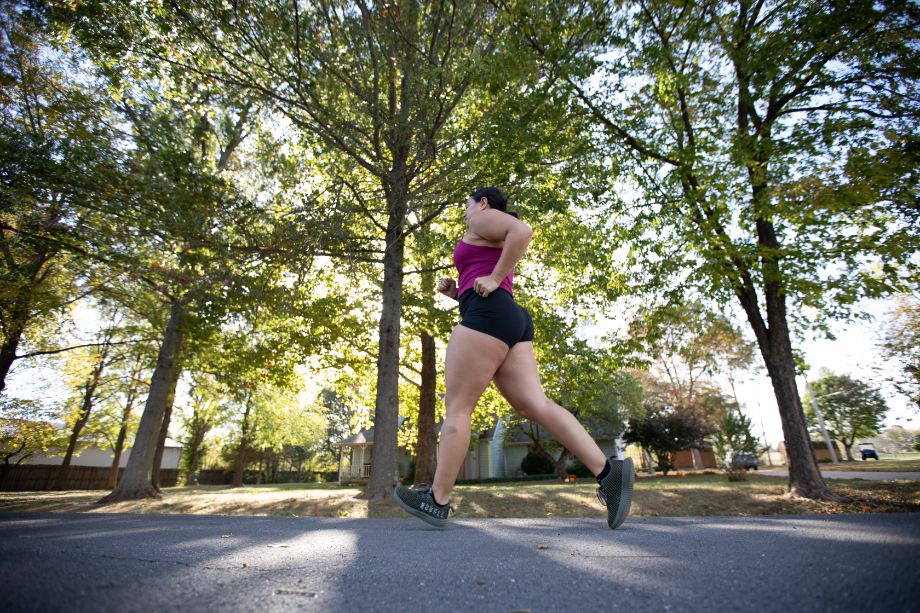
If you’re unable to walk or run, any sort of exercise routine that elevates your heart rate will have the same impact.
Running for Stress Relief
Running is one of the easiest ways to relieve stress. You need nothing more than a pair of running shoes to head out the door, warm up, and start enjoying the benefits of running.
Yes, running can be difficult, but you’ll experience the benefits immediately, even after your first run. You may feel tired, but research shows6 that even a single bout of exercise can improve cognitive function, boost your mood, and lower stress levels.
If you’re new to running, be sure to start slow, run at a moderate intensity, and consider following a beginner running plan to help you get started. Doing too much too soon can lead to aches, pains, and overuse injuries, so start slow and build your way up to longer runs.
Walking To Relieve Stress
For those who aren’t ready to start running yet, walking is an excellent alternative that provides many of the same benefits. Similar to running, walking can lower cortisol and adrenaline levels while releasing endorphins4, and most people can enjoy brisk walking regardless of their current fitness level.
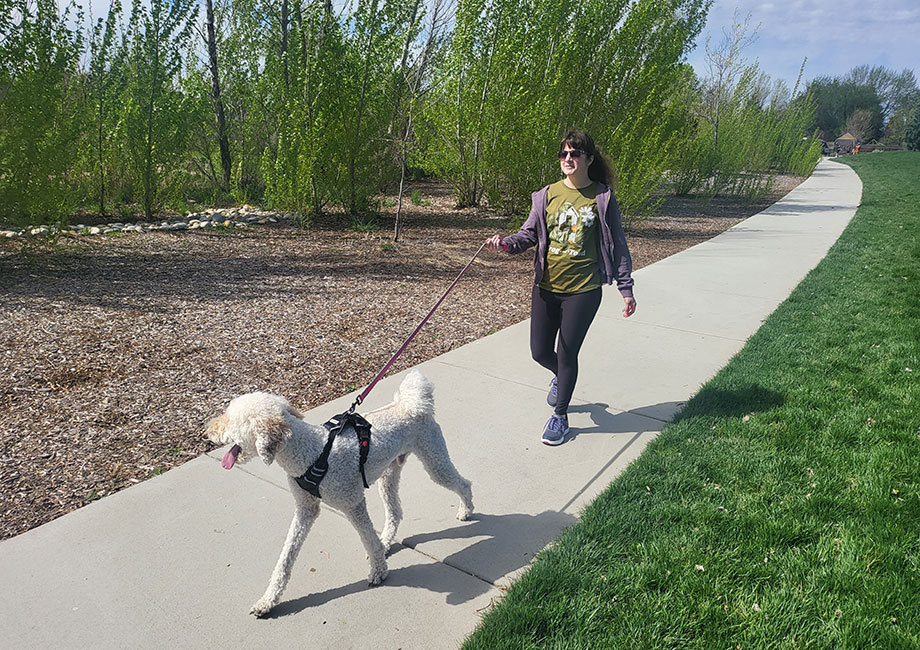
If you can walk in nature, rather than in a city environment or indoors, that’s even better. A 2022 study7 published in Molecular Psychiatry found that a one-hour walk in nature decreased amygdala activity in the brain, which is elevated during stressful situations. This didn’t happen when walking in a city, suggesting that nature walks can have a calming effect and relieve stress.
RELATED: Is Walking the Best Cardio?
Stress can also elevate your heart rate and blood pressure, and a 2021 meta-analysis found that regular walking8 can help lower blood pressure.
Exercise and Stress: Final Thoughts
Many deal with chronic stress regularly, which activates our stress response, releasing cortisol and adrenaline. Regular physical activity has been shown to help lower these stress hormones while releasing endorphins, which are naturally occurring hormones that elevate mood and promote feelings of well-being.
While all forms of exercise can benefit your overall health, cardiovascular exercise should always be included, as strength training may increase cortisol levels in the short term.
If you’re feeling stressed or burned out, a walk or run may be just what you need to calm down and enjoy some immediate stress relief.
Exercise and Stress: FAQs
How does exercising help with stress?
Exercise has been shown to lower levels of adrenaline and cortisol—the stress hormones—and trigger the release of endorphins, the body’s natural “feel good” hormones. This can happen after a single workout, which makes exercise a fantastic way to relieve stress.
Does exercising help with anxiety?
Yes. Similar to its impact on daily stress, exercise has been shown9 to provide significant relief of both anxiety and depression. If you struggle with these conditions and exercise doesn’t help, it may be worth speaking to a mental health professional.
How to reset your body from chronic stress?
According to Harvard Health10, daily practices that can help relieve chronic stress and improve your well-being include regular exercise, a healthy diet, and proper sleep. You can also focus on activating your relaxation response or “rest and digest” response, which turns down the “fight or flight” response activated by stress. You can achieve this through breathing and meditation exercises.
If you have physical symptoms that may be related to chronic stress, we suggest speaking to a healthcare provider.
What exercises calm you down?
Walking is a low-impact form of exercise that most people should be able to do, and has been shown to relieve high levels of stress. Other forms of exercise may help, though stress levels can temporarily increase while performing high-intensity exercise.
What is the 3-3-3 rule for anxiety?
The “3-3-3 rule” is a technique used to help calm down in periods of high stress. To do this, you’ll intentionally identify three things you can see, three things you can hear, and finally, move three body parts to help focus your attention outward while physically moving your body, distracting you from any stress and anxiety you may feel.
What exercise is best for stress and anxiety?
All forms of exercise can help with stress and anxiety. However, cardiovascular exercise may be the most important to include, as high-intensity training and resistance training may temporarily increase your stress levels.
References
- Childs, E., & de Wit, H. (2014). Regular exercise is associated with emotional resilience to acute stress in healthy adults. Frontiers in physiology, 5, 161. https://doi.org/10.3389/fphys.2014.00161
- Harvard Health. (2020, July 7). Exercising to relax. https://www.health.harvard.edu/staying-healthy/exercising-to-relax
- Heijnen, S., Hommel, B., Kibele, A., & Colzato, L. S. (2016). Neuromodulation of Aerobic Exercise-A Review. Frontiers in psychology, 6, 1890. https://doi.org/10.3389/fpsyg.2015.01890
- How stress affects your health. (2022, October 31). https://www.apa.org. https://www.apa.org/topics/stress/health
- Bermejo, J. L., Valldecabres, R., Villarrasa-Sapiña, I., Monfort-Torres, G., Marco-Ahulló, A., & Ribeiro Do Couto, B. (2022). Increased cortisol levels caused by acute resistance physical exercise impair memory and learning ability. PeerJ, 10, e13000. https://doi.org/10.7717/peerj.13000
- Basso, J. C., & Suzuki, W. A. (2017). The Effects of Acute Exercise on Mood, Cognition, Neurophysiology, and Neurochemical Pathways: A Review. Brain plasticity (Amsterdam, Netherlands), 2(2), 127–152. https://doi.org/10.3233/BPL-160040
- Sudimac, S., Sale, V. & Kühn, S. How nature nurtures: Amygdala activity decreases as the result of a one-hour walk in nature. Mol Psychiatry 27, 4446–4452 (2022). https://doi.org/10.1038/s41380-022-01720-6
- Lee, L. L., Mulvaney, C. A., Wong, Y. K. Y., Chan, E. S., Watson, M. C., & Lin, H. H. (2021). Walking for hypertension. The Cochrane database of systematic reviews, 2(2), CD008823. https://doi.org/10.1002/14651858.CD008823.pub2
- Henriksson, M., Wall, A., Nyberg, J., Adiels, M., Lundin, K., Bergh, Y., Eggertsen, R., Danielsson, L., Kuhn, H. G., Westerlund, M., David Åberg, N., Waern, M., & Åberg, M. (2022). Effects of exercise on symptoms of anxiety in primary care patients: A randomized controlled trial. Journal of affective disorders, 297, 26–34. https://doi.org/10.1016/j.jad.2021.10.006
- Harvard Health. (2017b, February 14). Take steps to prevent or reverse stress-related health problems. https://www.health.harvard.edu/stress/take-steps-to-prevent-or-reverse-stress-related-health-problems
Further reading
What should my macros be? A registered dietitian explains how to determine your macros based on your fitness goals! Read more

If you’re looking to take your running to the next level, read our guide on What is a Tempo Run to get the upper hand. Read more

Harness the power of the push press exercise and take your upper body strength to new heights with these tips from a certified personal trainer. Read more
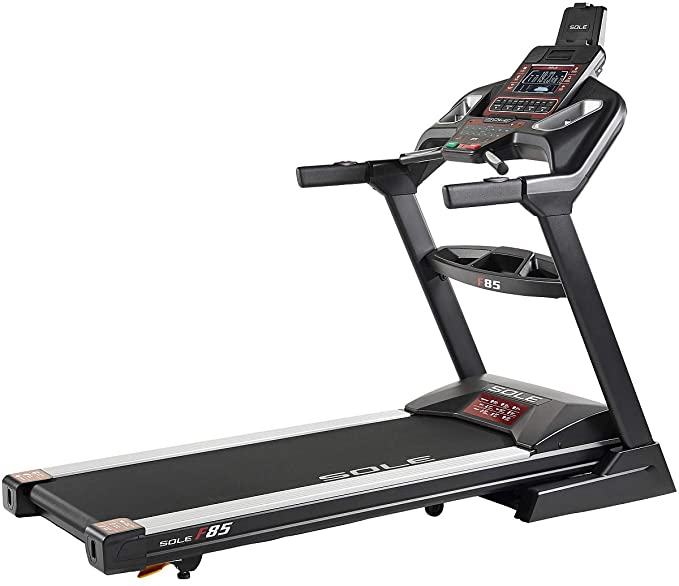
Check out this Sole F85 review to see if this durable treadmill is the cardio machine for you. Read more

